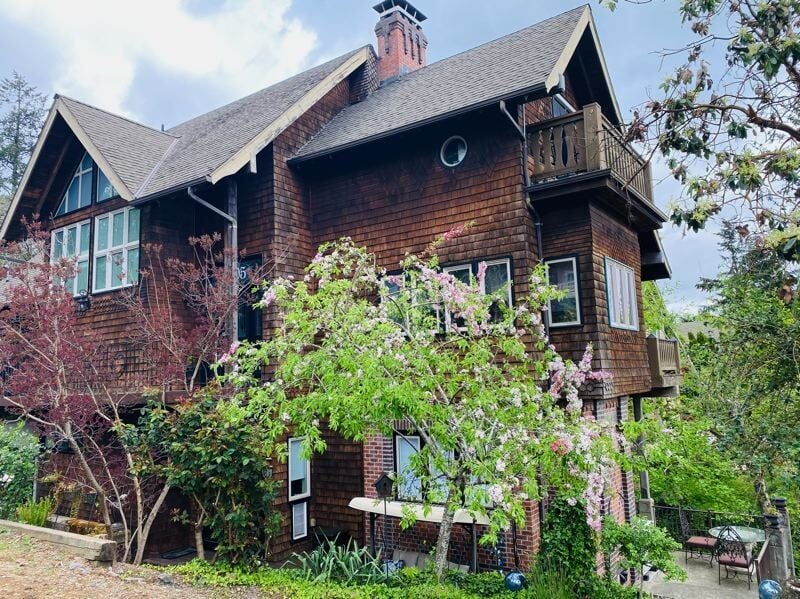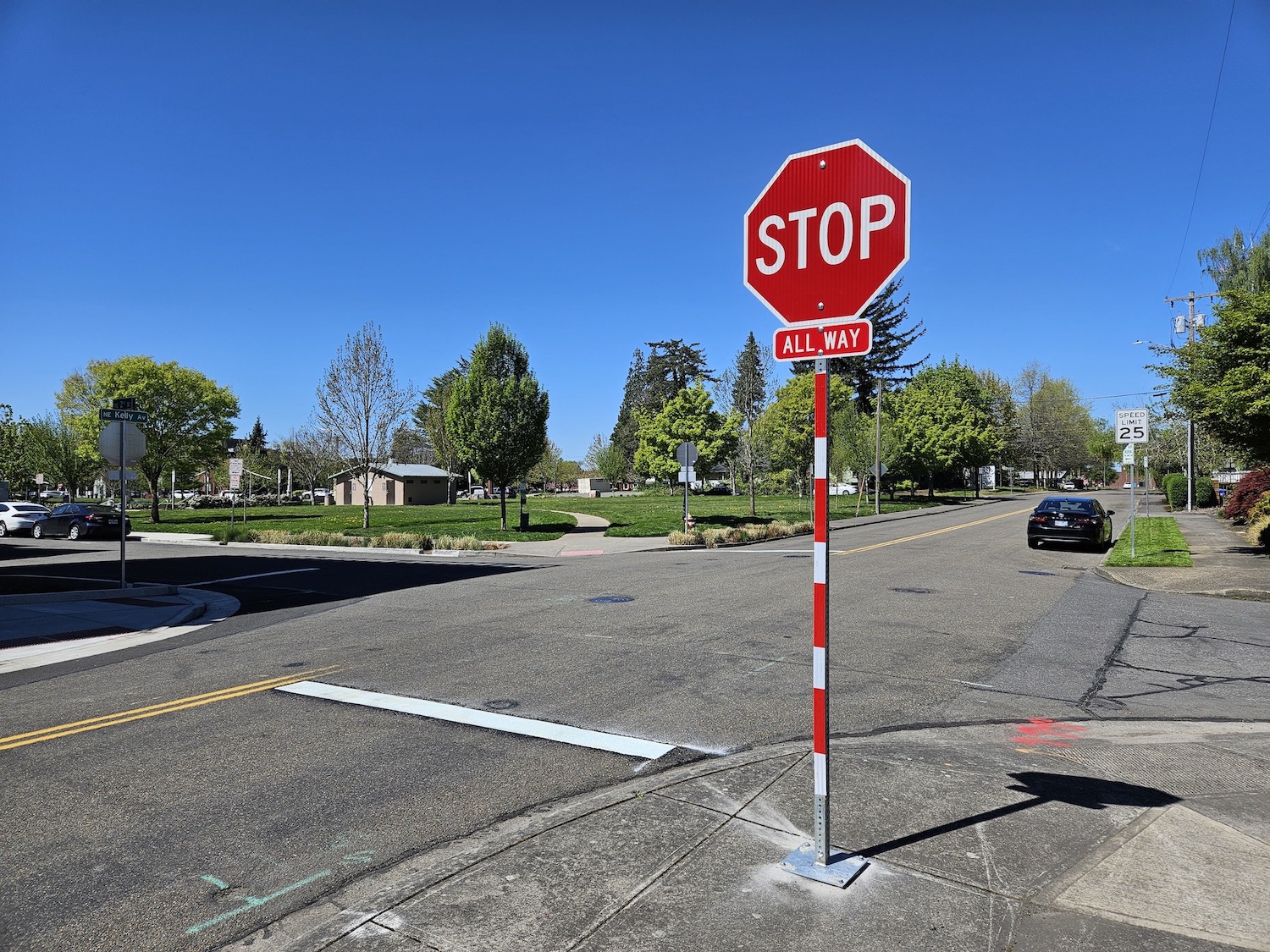Grand Ronde asks Gov. Kotek to hold off on granting funds to Willamette Falls Trust
Published 12:47 pm Monday, June 23, 2025

- The Willamette Falls Trust hopes to acquire land beside Willamette Falls for the Inter Tribal Public Access Project. (Courtesy image)
As the Confederated Tribes of Grand Ronde and four other regional tribal groups await a decision in their court battle over fishing at Willamette Falls, the inter-tribal disputes have moved to another front: the state Capitol.
The Grand Ronde has asked Gov. Tina Kotek to hold off on granting funds for the Willamette Falls Trust — which consists of the Confederated Tribes and Bands of the Yakama Nation, the Confederated Tribes of Siletz Indians, the Confederated Tribes of the Umatilla Indian Reservation and the Confederated Tribes of Warm Springs, who have all opposed the Grand Ronde in the fishing case — to acquire about 50 acres of land around Willamette Falls.
Willamette Falls, the 40-foot U-shaped basalt formation in the river between West Linn and Oregon City, has been a place of great importance for regional tribes since time immemorial. Before the U.S. government forcibly moved them from their ancestral homelands to reservations spread across the region, Indigenous people fished, traded and practiced cultural and spiritual activities at the falls for centuries.
But disputes about fishing rights and which tribes lived at and served as the falls’ caretakers have led to a fracturing of the relationship between the Grand Ronde and other regional tribes.
The trust’s ask
At the start of this year’s legislative session, the tribal members of the Willamette Falls Trust asked lawmakers on the Legislature’s Joint Ways and Means Committee for $50-75 million to acquire about 50 acres of land on the West Linn side of the falls for the trust’s Inter-Tribal Public Access Project.
The project, which was first announced to the public in 2023, would bring public access to the falls and restore the surrounding uplands along the river. The trust’s vision includes public walkways as well as “spaces for interpretation, cultural events, community programming, viewing structures and other public amenities, all informed by Indigenous-led design.”
As the area around Willamette Falls industrialized in the 19th century, public access to the falls, the second-largest waterfall by volume in the nation, all but vanished. The trust saw the recent closure of the Willamette Falls Paper Company — whose operations, along with Portland General Electric’s hydro facility, took up much of the land surrounding the falls — as an opportunity to restore that access for the public.
The land the trust seeks includes a portion of Moore’s Island, formerly used by the paper mill, and the uplands area along the riverbank and hill.
With about one week to go until the end of the legislative session, no funds have been granted to the trust yet. But allocations for such projects are typically made by lawmakers at the very last minute before the session ends.
Grande Ronde raises concerns
In a June 9 letter to Kotek, Grand Ronde Tribal Council Chairwoman Cheryl Kennedy urged state leaders to hold off on allocating funds to the trust and raised several concerns about the project.
“Proponents are presenting this project as returning land to Oregon’s tribal nations, however the WFT excludes CTGR, which is the Tribe of record in the area, and includes an out of state tribe,” Kennedy wrote.
The Grand Ronde was once a member of the Willamette Falls Trust, but pulled out of the group in 2021. For years the trust worked in partnership with Oregon City, Clackamas County and the Metro regional government on the Willamette Falls Legacy Project, which aimed to build a riverwalk along the falls in Oregon City. The Grand Ronde withdrew from the project and the trust, citing frustration at a lack of progress on the project.
Kennedy’s letter states that the Grand Ronde has attempted to work with the trust in the past “but the response has only deepened divisions.”
One of Kennedy’s listed concerns also points to what seems to be a root cause of the ongoing conflict between the Grand Ronde and the other tribes.
“The contractors hired by WFT have misrepresented Tribal history at Willamette Falls and there has not been adequate time or resources committed to the healing required to address this,” Kennedy wrote.
The Grand Ronde and other tribes have repeatedly argued over which tribes originally lived and fished at the falls. The Grand Ronde and Umatilla tribes, for example, have each previously commissioned historical reports on Indigenous history of Willamette Falls, with each side claiming the other’s report was disingenuous.
Amidst these disputes, Kennedy urged Kotek and state leaders to consult with the tribes before allocating funds to the Willamette Falls Trust.
“CTGR encourages further evaluation of the request, and engagement by Tribes with documented treaty rights, and whose aboriginal lands encompass the Willamette Falls waterway,” Kennedy wrote.
Trust ‘committed to an inclusive process’
In response to the Grand Ronde’s claims of exclusion from the project, the trust stated that the Grand Ronde was invited to join the trust board and Tribal Leadership Committee in 2021.
“That offer stands today and in perpetuity,” said Michelle Cole, a spokesperson for the trust. “We truly believe every project is stronger when all voices are heard.”
Cole also emphasized why now is the moment to move forward with the project.
“This is a once-in-a-generation opportunity to create the equivalent of a new state or national heritage site here in Oregon,” Cole said. “The land on the west side of the river is available for acquisition now. We must not miss this opportunity.”





